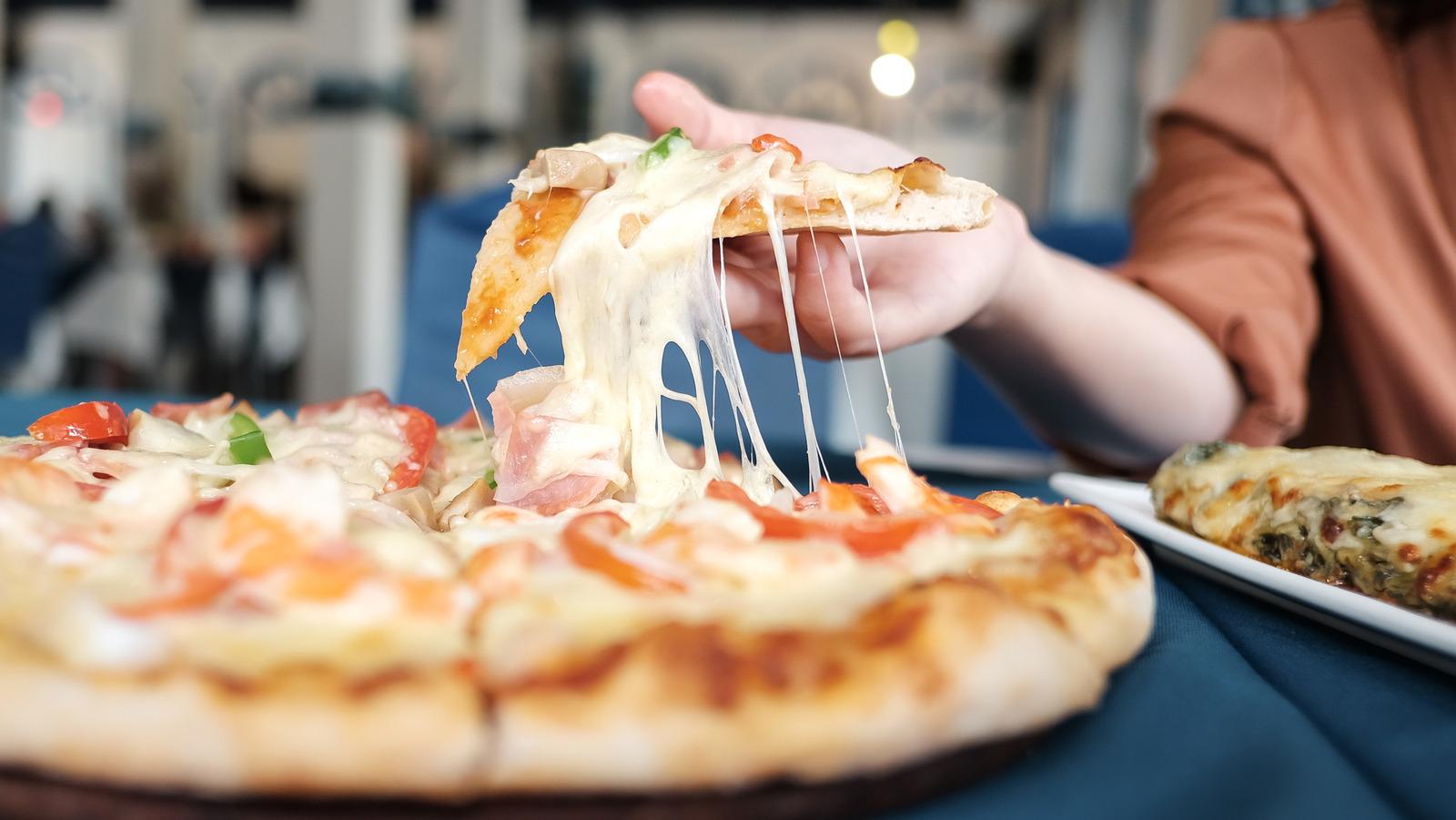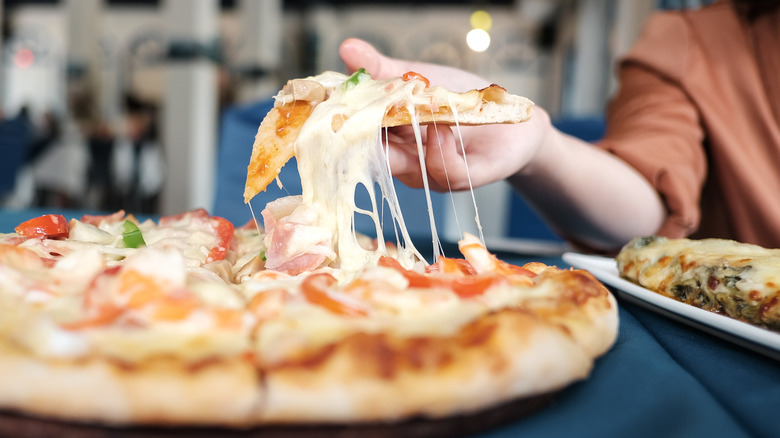
Waranya_photo/Getty Images
Ask anyone aged 8 to 88 what their favorite food is, and the chances are they'd say pizza. Dressed all the way down to a plain, cheesy, greasy slice from a store across the street or upscaled to the high heavens in Naples, Italy, pizza is one of those foods that everyone can agree on. That's probably why there are countless pizza chains all across the world.
Some chains encourage customers to build their own pizza, and some chains opt to showcase their own inventions as specialty pizzas — to each their own! But sometimes, those reliable favorites aren't as dependable as you might think. What if instead of enjoying a food coma, you become sick from ingesting a contaminated slice? Or what if, after treating yourself to a whole box of your go-to order, you're battling a bout of salmonella poisoning? Nationwide and local, these are the worst pizza chain restaurant recalls and outbreaks in history.
Pizza Shoppe recalls 992 cases of salad dressing due to spoilage concerns (2025)
Everyone's guilty for leaving food out a little too long — the worst that can happen is a little food poisoning, right? Imagine that kind of mistake on a larger scale, and soon, a company is recalling over 4,000 pounds of questionable salad dressing. This happened to the Kansas City local chain Pizza Shoppe in early June 2025 when La Fontanella Food Products LLC recalled its The "Pink Stuff" World Famous Creamy Garlic Salad Dressing for potential spoilage concerns.
The Pizza Shoppe-exclusive dressing was sold in stores and online until the recall. Luckily, there have been no reported illnesses or issues from customers, but this issue did result in nearly 1,000 cases of the salad dressing being recalled. Pizza Shoppe hasn't released any statements or updates on this recall, but it frequently posts about the "Pink Stuff" salad dressing on social media. As soon as one week after the recall, Pizza Shoppe's Instagram was already posting "Pink Stuff" dressing ads – surely this time, without any spoilage issues.
Pizza Hut recalls onions contaminated with E. coli (2024)
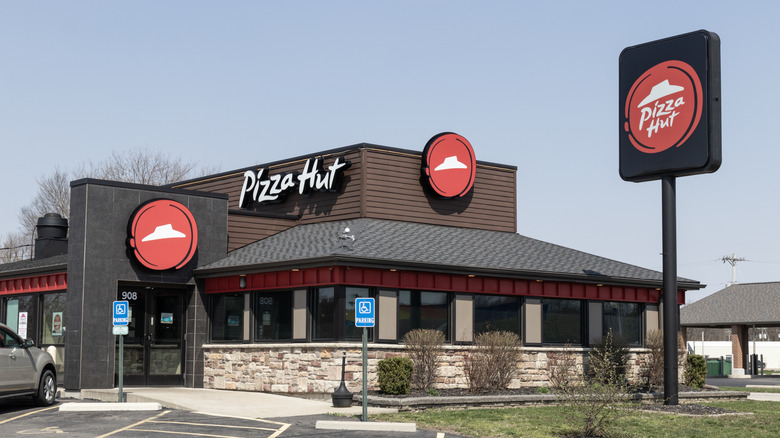
Jetcityimage/Getty Images
Pizza Hut is one of the most recognizable pizza chains in America, but it isn't without its faults. The chain has shown signs of struggling for the past few years — filing for bankruptcy, closing multiple locations, and skyrocketing prices are just a few of its issues. In 2024, the iconic pizza chain took another hit with a pretty worrisome food recall.
Onions are one of the most frequently used ingredients in all kinds of cooking, so it's no surprise that they show up as a topping option on pizza (despite being one of the most hated toppings). Unfortunately, in 2024, U.S. Foods announced that Taylor Farms put out a recall notification on its onions due to potential E. coli contamination. This recall affected multiple fast food chains that utilized U.S. Foods' onions — McDonald's, Taco Bell, KFC, and of course, Pizza Hut. McDonald's was hit the hardest by this contamination, as there were 10 reported hospitalizations and one death linked to its Quarter Pounders. Luckily, the onions were pulled from Pizza Hut before any illnesses were reported, and the recall has since ended.
Famous Yeti's Pizza accidentally served THC-laced pizza, affecting at least 85 customers (2024)
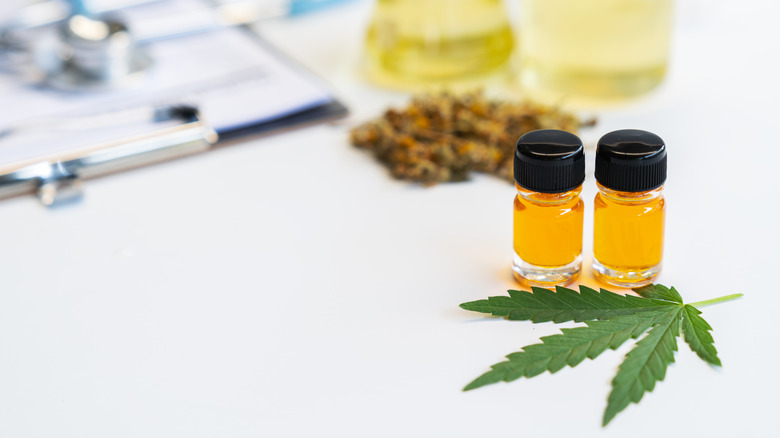
Krisanapong Detraphiphat/Getty Images
Pizza is probably the go-to food when you've got the munchies. There's almost no better vehicle for cheese and grease than a deliciously doughy crust. For some people out there, eating a THC-laced pizza might be intentional, but if you just wanted a straight pizza with no intention to satisfy any craving other than hunger, this would be a total nightmare.
Famous Yeti's Pizza in Wisconsin dealt with this exact issue when co-owner Cale Ryan made a batch of pizza dough with the wrong oil. Each batch of pizza dough can make about 60 pizzas, so this accident resulted in around 85 customers being affected. Approximately 33 people had to visit a healthcare provider because of their symptoms, 27 people went to an ER, three people experienced impaired driving, and three people had to miss work. Ryan told the Guardian, "They get really stoned. They get intoxicated from the THC, so I think it's more alarming than anything to feel that way. It's basically eating an edible, but without knowing." Thankfully, there were no serious illnesses, and according to a Reddit thread about the incident, the owner took the situation very seriously and was actively trying to right his wrongs.
Papa John's dip and dressing pulled for accidental peanut contamination (2024)
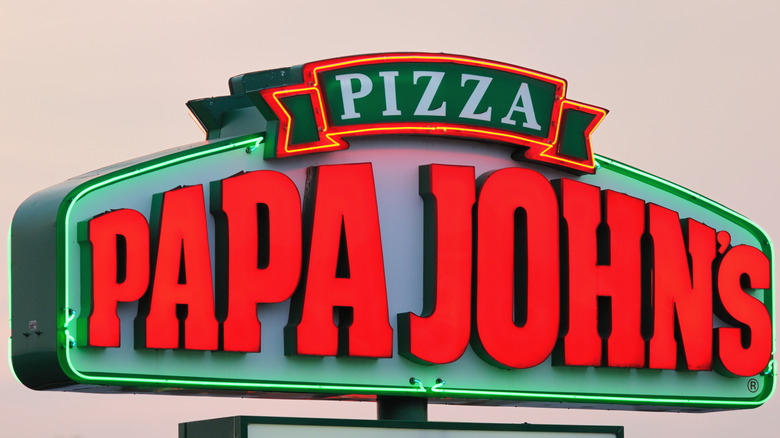
Sshepard/Getty Images
Papa John's is another iconic pizza chain that's had its fair share of controversies and issues. Its very own Papa John, John Schnatter, has been in hot water more than once, and just like Pizza Hut, the chain has struggled to stay open. Things weren't getting any better for this Indiana-born company when its overseas branches in the U.K. faced an urgent recall of popular dips and dressings.
The pizza chain, which has over 450 stores in the U.K., recalled its Garlic and Herb Dip and its Vegan Ranch Dressing due to an accidental peanut contamination. About one in 200 adults and one in 50 children in the U.K. have a nut allergy. Peanut allergies and food allergies in general can be dangerous and even life-threatening, so unknowingly dunking pizza crust into a peanut-riddled garlic sauce could mean a trip to the ER for some folks. Thankfully, no illnesses have been reported related to this recall.
Domino's dips recalled due to peanut contamination (2024)
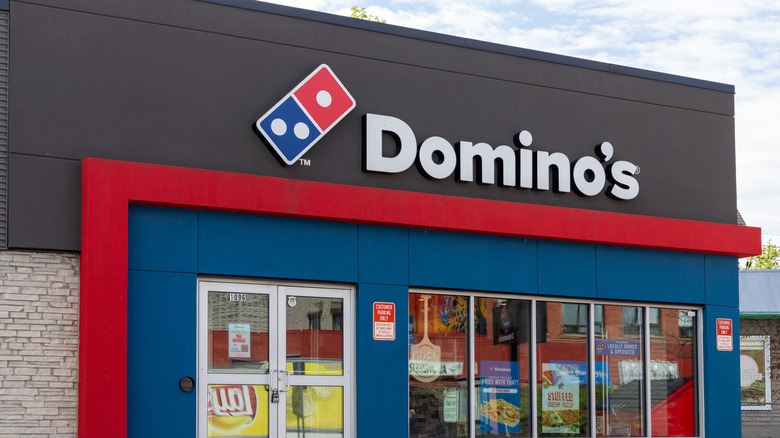
Iryna Tolmachova/Getty Images
Many customers agree that Domino's Pizza has gone through a lot of changes through the years. From its beginnings as one of the first pizza chains to offer delivery services to integrating generative AI into its back-of-house operations, Domino's has been a mainstay of the ever-changing pizza market. It's a go-to option on Super Bowl Sunday, a safe option for hungry college kids, and with more than 20,000 stores around the world, it has quite the name recognition. Given its long history, it's no surprise the chain has dealt with its fair share of food recalls.
In 2024, Domino's faced a similar issue to Papa John's and needed to recall Domino's signature BBQ dip due to a peanut contamination. The supplier at fault was FGS Ingredients, and over 20 dips and seasonings were included in this recall. The Garlic and Herb and Honey and Mustard were two key dips with traces of undeclared peanut. There have not been any reports of customers facing illness due to this recall, and thankfully, the pizza chain has not dealt with a recall since this incident.
Papa Murphy's recalls raw cookie dough after salmonella outbreak (2023)
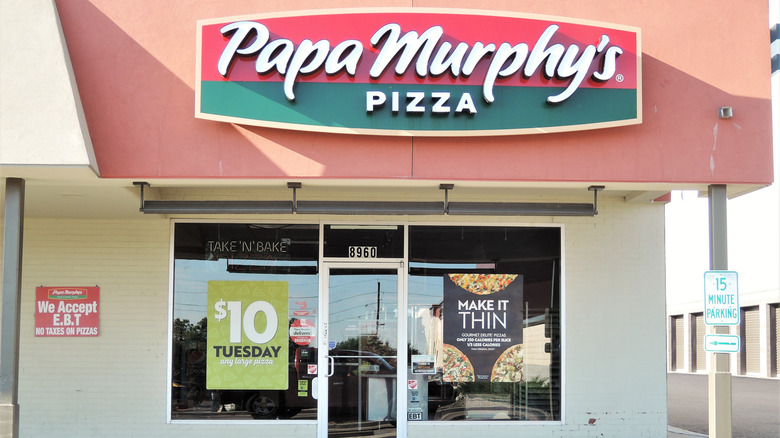
Jim Lambert/Shutterstock
In a 2022 survey, Papa Murphy's was named the best pizza chain in America: the pizza joint boasted high food quality, good value for money spent, and speedy service. So, how did the chain fall from the public eye just a year after? A sad outbreak of salmonella in its cookie dough. Cookie dough is one of those foods that is typically associated with salmonella, given that raw egg is a key ingredient. It's tempting to indulge in a hunk of chilled raw cookie dough, but doing so with the 2023 batch of Papa Murphy's could have been a grave mistake.
The Papa Murphy's Take 'N' Bake raw Chocolate Chip Cookie and S'mores Bars dough was recalled in 2023 for a multistate salmonella outbreak. The CDC reported that 18 people became sick after dealing with symptoms tied to eating raw cookie dough. Both the CDC and FDA urge people not to eat raw cookie dough due to the potential contamination with salmonella and E. coli. The "take 'n' bake" chain has since ended the recall and is back to selling raw cookie dough. On its website, the chain even boasts Chocolate Chip Cookie Dough that can be eaten raw!
Papa John's pulls 373 pounds of ready-made salads due to listeria contamination (2016)
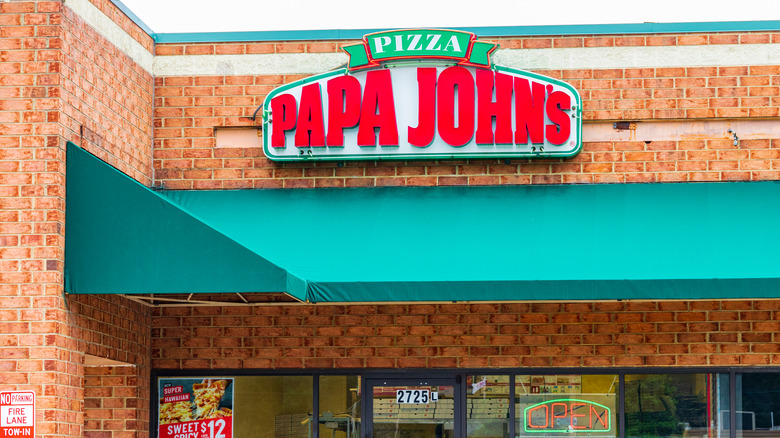
J. Michael Jones/Getty Images
Ordering salad at a fast food joint may not make a lot of sense for some folks, but sometimes people just need a break from their greasy food diet. Who wouldn't want to cut the grease of an oil-soaked pizza with a bite of crisp, green lettuce? Well, if you were a Papa John's customer in 2016, skipping the salad might have saved your life.
In mid-May 2016, SunOpta alerted Papa John's of a possible listeria contamination in its sunflower kernel products used in the pizza chain's ready-made salads. Papa John's had to recall 373 pounds of salads because of this issue. Consuming food that's contaminated with Listeria monocytogenes can be very serious — the elderly, infants, and people with weakened immune systems are most at risk of being infected with listeriosis. Listeriosis can cause a number of negative symptoms, like fever, muscle aches, headache, confusion, loss of balance, and convulsions. Thankfully, there were no reports of illnesses linked to this contamination.
Pizza Ranch E. coli outbreak spans 9 states (2016)
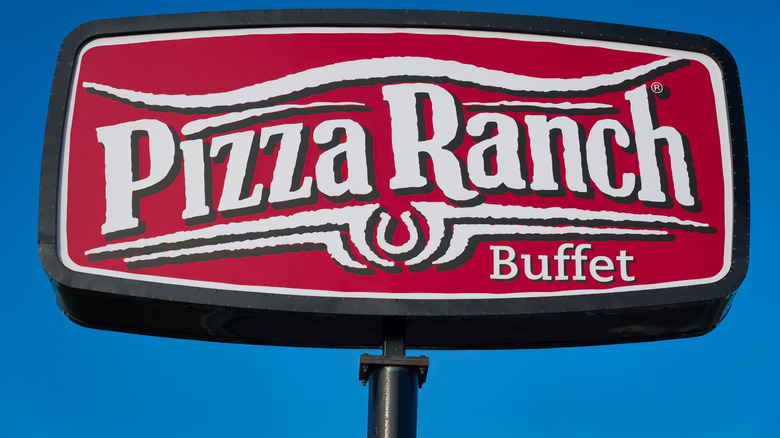
Ken Wolter/Shutterstock
Pizza Ranch is an Iowa-born pizza chain that has 215 locations across 15 states. This Midwestern restaurant is known for its popular buffet option that features pizza, fried chicken, salads, sides, and desserts, but of course, the heart of Pizza Ranch is its pizza. It started out with just six specialty snd single topping pizzas and grew into one of the most popular local chains in the Midwest.
And like any popular chain, Pizza Ranch has had its issues with food contamination. With a rise in popularity and number of customers, restaurants are bound to get into some sort of bacterial or illness outbreak. In 2016, Pizza Ranch faced a pretty gnarly E. coli outbreak that spanned nine states and resulted in nine illnesses. The chain ran its own tests and confirmed that E. Coli was not present in any of its products tested. Despite this, the restaurant did temporarily stop using its dough mix as it may have been a factor in the illnesses. Pizza Ranch executive, Ryan Achterhoff, took action after the outbreak and ensured to CNBC that each restaurant would undergo "a special, precautionary cleaning of all surfaces and equipment used in dough preparation or service."
Chuck E. Cheese Recalls 1,100,000 Light-up Rings and 120,000 Star Glasses Due to Ingestion Hazard (2010)
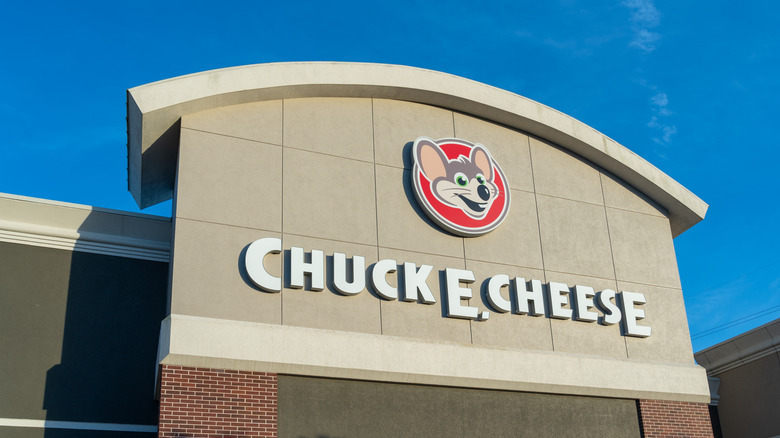
JHVEPhoto/Shutterstock
Many people have fond childhood memories of Chuck E. Cheese — playing games, jingling a giant bucket of tokens, and exploring the colorful but questionable ball pit. Best of all was exchanging hard-earned tickets for prizes at the prize wall. This mini Dave and Busters was the best at getting kids excited about plastic toys that cost a few cents to manufacture. Seemingly inconspicuous, those little plastic toys are the subject of this recall.
In 2010, Chuck E. Cheese had to recall a staggering number of toys due to an ingestion hazard — not the best look for a chain marketed to families with young kids. According to the Consumer Product Safety Commission, the specific hazard occurs if these plastic toys are taken apart. If so, the plastic can break into small pieces and possibly expose the batteries, posing a threat to kids. Two incidents were reported regarding the light-up rings, one involving a child inserting a battery into their nostril and one involving a child swallowing a battery. According to Poison Control, most non-food objects that are swallowed will pass through the body easily. There are some objects, though, that are dangerous to the human body when ingested, including batteries. Unfortunately, there are no solid reports of the affected children's outcomes.
Pizza Fusion switches tomatoes after a salmonellosis outbreak (2008)
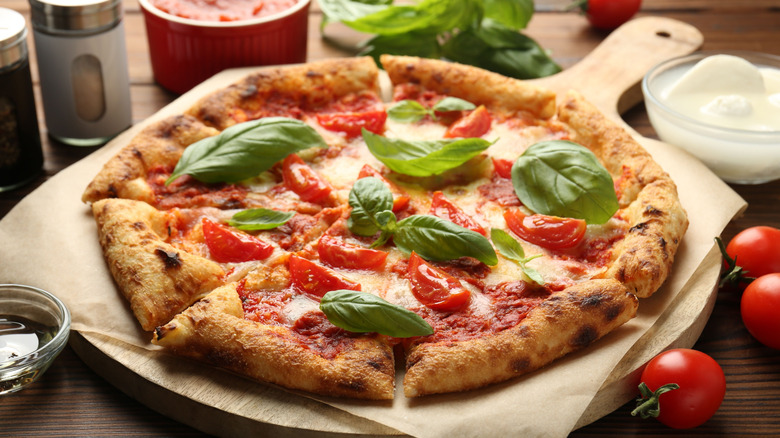
New Africa/Shutterstock
Pizza Fusion, now defunct, was a Florida-based pizza chain that had 63 locations across the United States and even a few locations in Saudi Arabia. Back in 2008, you would be hard pressed to find a pizza restaurant that catered to strict dietary needs, but Pizza Fusion was a savior to all health-conscious pizza lovers. It was known for its oval-shaped pizzas and its gluten-free, vegan, and lactose-free options. It was a chain that prioritized organic ingredients with options for any diet, but fresh ingredients don't always mean safe ingredients.
In 2008, Pizza Fusion was forced to switch its ingredients after the FDA announced a nationwide notice of a salmonellosis outbreak regarding raw Roma and round red tomatoes. At the time, the organic pizza chain prided itself on its use of fresh ingredients, but because of this scare, it needed to switch suppliers and use canned tomatoes instead. Ashley Rathgeber, supply development manager at Pizza Fusion, told PMQ, "While sourcing conventional ingredients goes against our organic menu offerings, we're ready and willing to do so at a moment's notice in the best interest of our customers." Thankfully, there were no illnesses directly related to Pizza Fusion and its tomatoes.
CPSC, Chuck E. Cheese Announce Recall of Plastic Siren Whistles (2005)
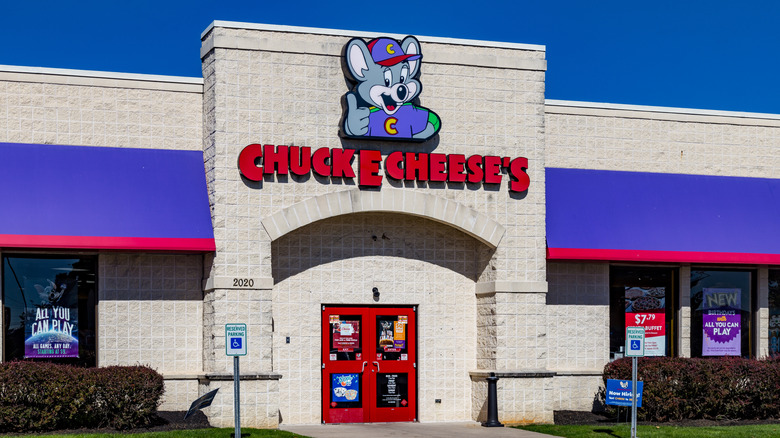
Gsheldon/Getty Images
Chuck E. Cheese has been the subject of conspiracy theories and has gone through many changes over the years, but that doesn't stop the chain from being an icon of American childhood. Now, Chuck E. Cheese is not many people's immediate thought when they think of pizza chains, and for good reason. The last time an adult stepped foot in the entertainment hub was probably 20 years ago, and even then, they may not have clear memories of the pizza. They most likely remember the animatronics, games, and coveted prize wall.
The prize wall (not the pizza!) is the subject of this pizza chain's recall. In 2005, the rat-themed pizza chain had to recall about 144,000 plastic siren whistles due to a choking hazard. These whistles had internal pieces that could come out of the toy, posing a serious danger to kids if swallowed. There were four children reported who started to choke, and three reports of kids swallowing pieces of the toy. Due to the severity of this recall, it truly is one of the worst pizza chain recalls in history.
E. Coli outbreak causes 34 infections due to lettuce from Pat & Oscar's (2003)
Pat & Oscar's was a Southern California-based pizza parlor that specialized in pizza, breadsticks, chicken, and ribs. The chain was known for its buttery, garlicky, golden brown breadsticks, which rivaled the addictiveness of Olive Garden's. The company underwent multiple rebrandings, changing its name from Oscar's to Pat & Oscars in 2001, then to O's American Kitchen in 2012, and finally to Oscars Brewing Company in 2021. From bankruptcy to restaurants closing and re-emerging, this all-American pizza chain has seen a lot of hard times. Surprisingly, an E. Coli outbreak in 2003 didn't stop them from becoming a beloved Temecula, California staple.
Pat & Oscar's big E. Coli outbreak was part of a larger outbreak that affected countless diners that ordered salads allegedly distributed by Family Tree Produce of Anaheim. The pizza chain itself saw at least 34 infections due to lettuce ingestion. The customers affected ranged from 17 months old to 84 years old. This is especially harrowing since E. Coli most greatly affects infants and the elderly, exacerbating symptoms of stomach cramps, nausea, vomiting, and diarrhea. Some of the affected customers were hospitalized due to the infection, but thankfully, the outbreak did not result in any deaths.



